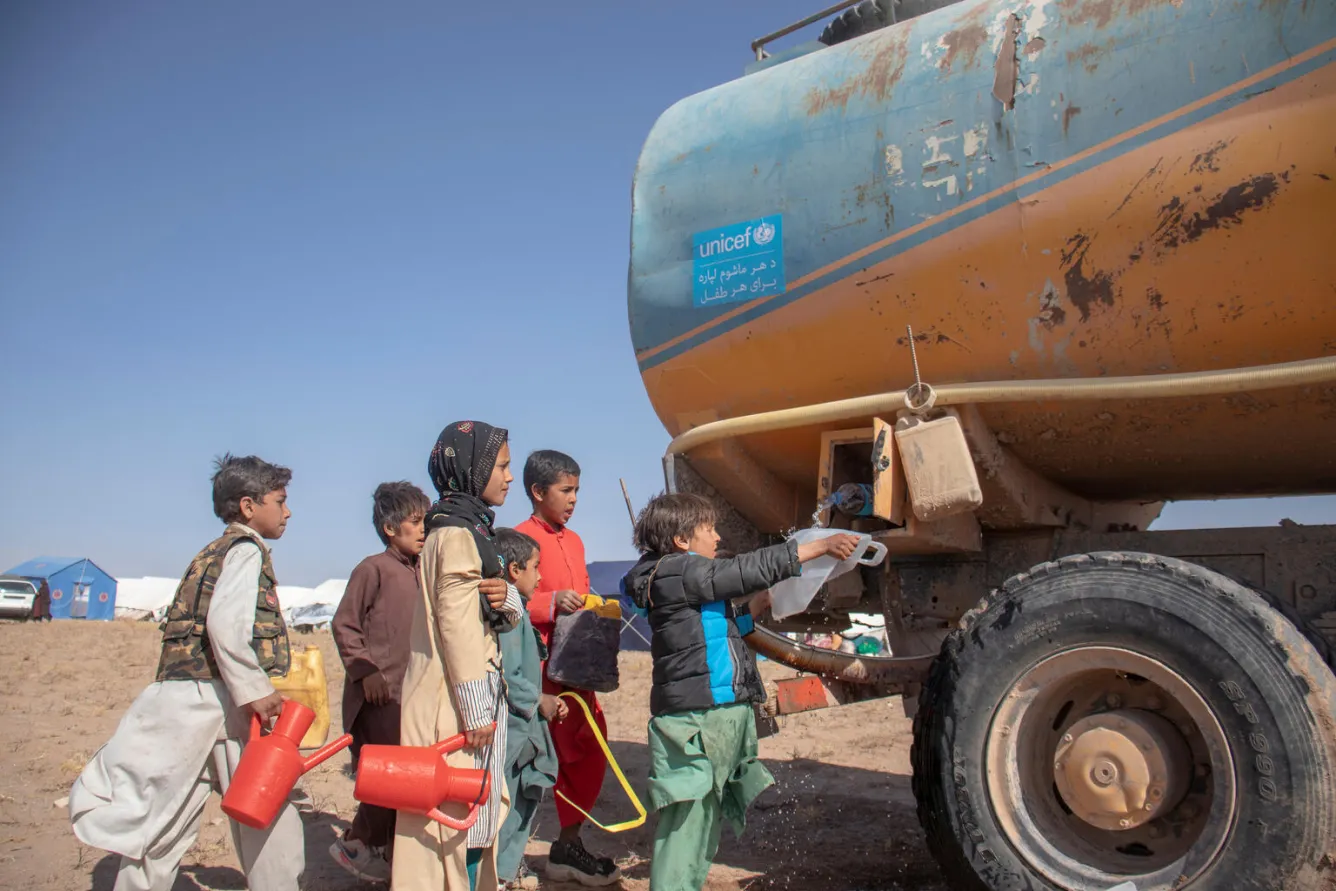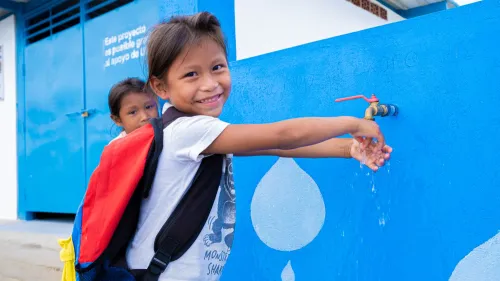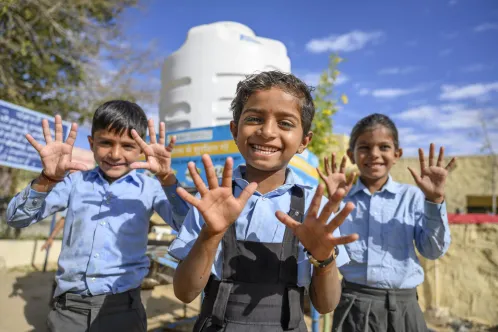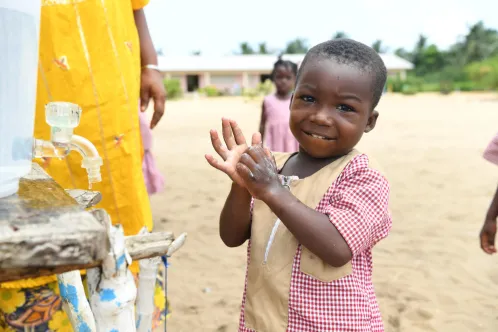Access to water and sanitation services is crucial in times of crisis
Water, sanitation and hygiene services are often the first things children and families lose access to during an emergency. With no safe water or adequate sanitation and hygiene services, people become even more susceptible to water and hygiene-related diseases like diarrhea, cholera and measles.
To prevent the outbreak of public health emergencies, UNICEF is working with our partners to ensure water, sanitation and hygiene services are prepared to support children and their communities in times of crisis.
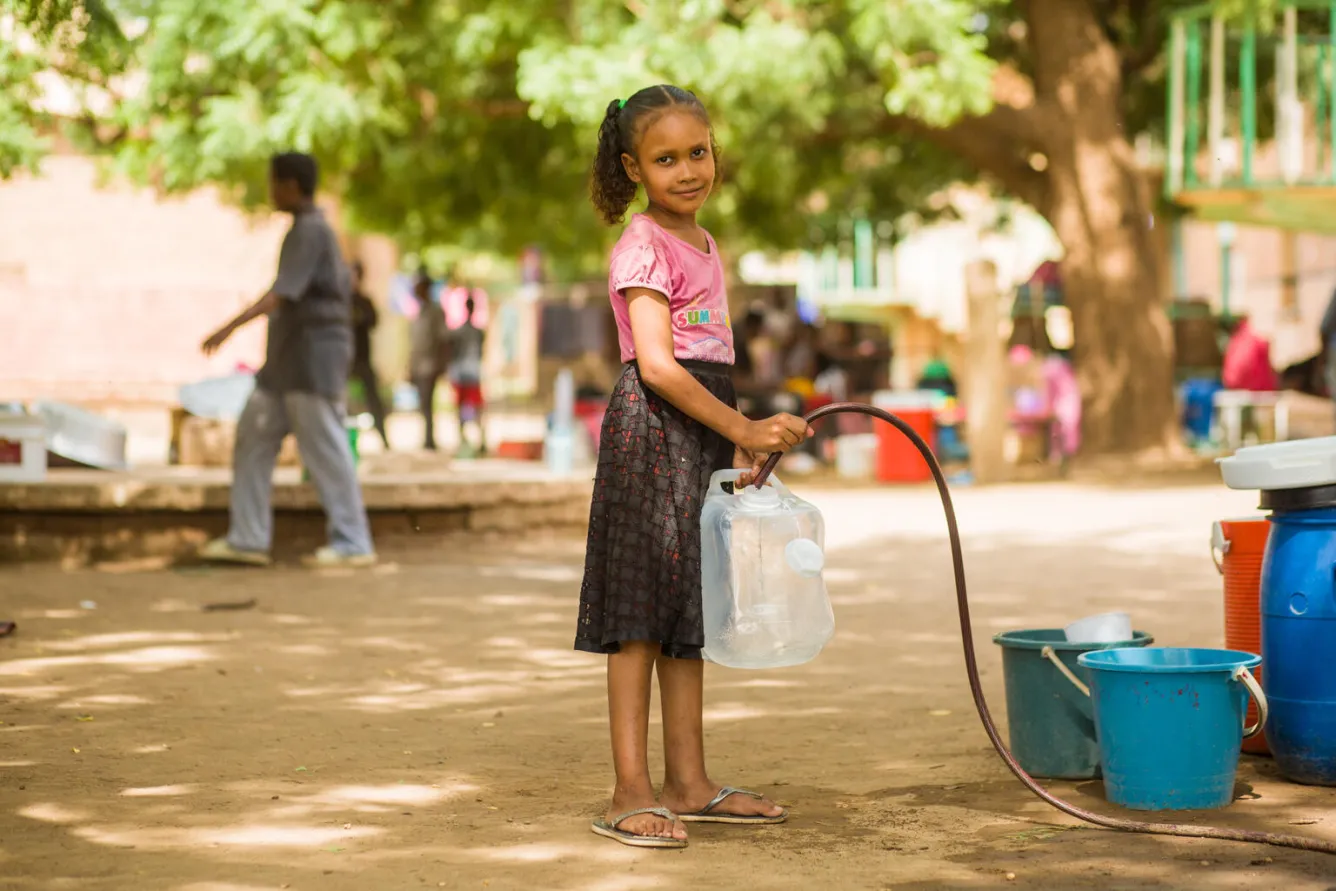
UNICEF’s work in providing water and sanitation services in emergencies
From trucking water, to repairing water and sanitation systems, to drilling wells, to providing essential hygiene items, UNICEF is working with our partners to ensure children in emergencies can get the water, hygiene and sanitation services they need to survive.
As the world’s humanitarian lead on water, hygiene and sanitation in emergencies, we provide emergency services in over 60 countries, including those affected by armed conflict, migration crises, natural disasters, and diseases like cholera, Ebola and COVID-19.
We are there to ensure the resilience of water, sanitation and hygiene services before, during and after emergencies by:
- Helping control and prevent infection in homes, schools, healthcare facilities and public spaces;
- Building and maintaining resilient water, sanitation and hygiene infrastructure;
- Assessing physical damage, economic loss and the cost of recovery in the wake of emergencies and working with governments to help plan for recovery and redevelopment.
